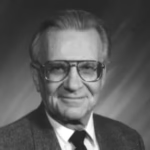The local church is not a building made of mortar, nor a human society, nor an informal gathering of believers, nor a club. Rather, it is a group of professing baptized believers in Christ who have organized themselves for the purpose of doing God’s will.
In effect, the local church is the sum total of all the believers in the assembly, not just the leaders or the uniquely gifted. The actual work of the church is not to be conducted by the “clergy,” some paid professionals, or by a select few. The work of the church is to be done by all of the believers working harmoniously together in the assembly.
This is precisely the message of Paul in Ephesians 4. He reminds us in verses 1–16 that we have been called to one body. Therefore, as we walk in unity we are walking worthy of the calling we have from God. That calling is described in chapters 1–3. In chapter 4 the believer is urged to live up to his calling. He is to maintain the unity already existing in the body. Paul develops his concerns along three lines.
First, the ground for this unity is one Lord. He is Lord of the Church. It belongs to Him. He is God of both the universal and local aspects of His Church. While there is “one body,” this does not minimize the importance of the local assemblies of believers. In fact, the only visible expression of the body is the local church.
But Paul is speaking of matters of utmost importance to the whole program of God. The body of Christ never sent out a missionary, built an orphanage, or fellowshipped at the Lord’s table. For these reasons, among others, the major emphasis in the New Testament is on the local church. But the administration and ministry of the local church must be based on what Paul teaches about one Lord and the one body which belongs to Him.
Second, the gifts for unity in the church are spoken of in verses 7–11. When Christ ascended He gave gifts to men and He gave these gifted men to the local churches. It is amazing to discover that it does not matter whether one is speaking of the founding of the church in Biblical times (apostles and prophets) or the perpetuation of the church through history (evangelists and pastor/ teachers). There are God-ordained leaders in the local churches who have been placed there by God Himself to administrate His affairs through His church. Any distortion or destruction of God’s plan results in disunity and a weakened witness. Why is there a proliferation of pastors under attack from their own churches when God ordained that we should follow our leaders? No doubt some pastors create their own problems, but would not many of our problems be solved, if we would follow the Lord’s blueprint for the building of His church?
Third, the goal of unity is described in verses 12–16. This is where the issue really lies. The pastor/teacher, as well as the other gifted men, is to feed the saints the Word of God to equip them to do the work of service (ministry). Consequently, as each saint is “mended” or equipped, he grows and serves. And when this happens, the entire assembly grows up and out. Verse 12 appears in one translation this way: “to prepare God’s people for works of service, so that the body of Christ may be built up . ..”
Unfortunately, there are too many Christians who are still babies and are unstable and easily led astray (v. 14). But true biblical unity is achieved by doing God’s work God’s way—by all believers doing the work of the ministry as they have been gifted by the Holy Spirit and equipped by the pastoral leadership.
The church is Christ’s, not ours. God works through gifted men to equip the saints for their work of ministry. And as the saints work in unison in ministry, the church grows both spiritually and numerically. Anything else produces disunity and creates “our” church, not His.

Dr. Ralph G. Turk
Dr. Ralph G. Turk (D.Min., Trinity Evangelical Divinity School) was a dedicated pastor and theologian known for his passion for Christ, compassion for people, and zeal for ministry. Born in Yale, MI, he served in various pastoral roles across California, Colorado, Illinois, and Minnesota before joining the faculty at Faith Baptist Bible College in Ankeny, Iowa, in 1988.
Dr. Turk was a professor and briefly served as dean at the seminary he attended, where he hosted memorable seminars, including one on Kierkegaard in his living room. He passed away in 2002, leaving behind a legacy of faithful service and commitment to theological education.